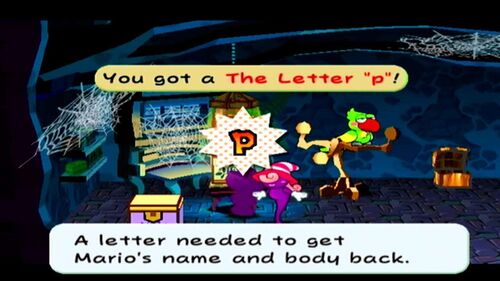The official discord link if you wish to join the discord: https://discord.gg/j5RKwCvAFu
Support the wiki on our official Ko-Fi page or Patreon page!
Linguistic Manipulation: Difference between revisions
From The Codex
| Line 7: | Line 7: | ||
[[File:Linguisticmanipulationexample.jpg|center|500px]] | [[File:Linguisticmanipulationexample.jpg|center|500px]] | ||
==Background== | ==Background== | ||
Latest revision as of 05:17, 12 January 2025
Abilities related to Abstract Manipulation
| |
|---|---|
| Related Abilities | Conceptual Manipulation - Principle Manipulation - Linguistic Manipulation |

Background
Linguistic Manipulation is the ability to manipulate the structure and meaning of words, terms, and language itself, including names, definitions, and context. This power allows the user to control language on a fundamental level, altering the very essence of reality by changing the linguistic properties that define objects, abilities, or concepts.
Possible Applications
With this ability, users can:
- Alter Words and Terms: Users can control words letter by letter, changing their meaning or power, which can have direct effects on reality. For example, altering the definition of "fire" could change how fire behaves or whether it even exists.
- Rename or Redefine Objects and Abilities: By manipulating the terms that define something, users can completely rewrite what an ability or object is, or even erase its definition, rendering it powerless or nonexistent.
- Contextual Manipulation: Users can alter the context in which words or terms are used, shifting the reality of a situation by changing the language's meaning in real time.
- Reality Shifting via Language: By changing the linguistic properties of an object or concept, users can influence how reality interacts with those things.
- Definition Control: The ability to rewrite or remove the definitions of terms, effectively rewriting reality according to the user's intentions.
- Naming Power: Users can give or strip names from people, objects, or concepts, controlling their significance and identity.
Possible Limitations
- The manipulation of intricate languages or terms might require deep knowledge and understanding.
- Entities with a greater mastery over language and meaning may resist or counter linguistic manipulation.
- The ability might be limited to specific languages, constructs, or contexts, depending on the user's skill.
- The manipulation of abstract concepts might be more challenging than concrete ones.
Potential Types
- Name-based Manipulation: Users can alter the names of objects, beings, or concepts, changing their meaning and sometimes their inherent power or function.
- Contextual Linguistic Shifting: Allows the manipulation of meaning based on the context in which words are used.
- Term Deletion: The power to completely erase a word or term from existence, effectively nullifying whatever it previously defined.
Possible Uses
- Reality Manipulation: Altering the meaning of terms or words can directly change how reality behaves, such as redefining the laws of physics or removing laws entirely.
- Creating Concepts: Users can create entirely new terms and concepts that have tangible effects on the world around them.
- Memory Erasure: By altering the definition of memories or identities, users could rewrite or erase someone's recollections.
- Object Nullification: By changing or erasing the definition of an object, it can lose its physicality or function.
Potency
The potency of Linguistic Manipulation is determined by the user's mastery over language and the complexity of the changes they wish to make. For example:
- Low Potency: The user may be able to change simple terms or affect minor objects or abilities with limited effects.
- Moderate Potency: The user can manipulate more complex terms or larger objects, shifting reality to a greater degree.
- High Potency: The user can alter fundamental aspects of reality, including laws of physics, concepts, and even the structure of time and space itself.
Possible Limitations
- The manipulation of intricate languages or terms might require deep knowledge and understanding.
- Entities with a greater mastery over language and meaning may resist or counter linguistic manipulation.
- The ability might be limited to specific languages, constructs, or contexts, depending on the user's skill.
- The manipulation of abstract concepts might be more challenging than concrete ones.
